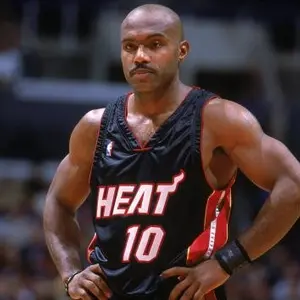
Hardaway started in 81 games, averaging 20.3 points, 8.6 assists, while placing fourth in the league with 203 three-point baskets. The following season was a huge success for Miami and for Hardaway, as he finished 4th in voting for the NBA Most Valuable Player Award, was selected to the All-NBA First Team as Miami won a franchise record 61 wins. Miami made the playoffs but were swept in the first round by the 72 win Chicago Bulls. Hardaway played for the Warriors until the middle of 1995–96 season when he was traded to the Miami Heat along with Chris Gatling in exchange for Kevin Willis and Bimbo Coles.įollowing the mid-season trade to Miami, Hardaway started 28 games to finish the season, averaging 17.2 points a game with 10 assists. He reached 5,000 points and 2,500 assists faster than any other NBA player except Oscar Robertson. The following season Hardaway averaged a career-high 10.6 assists a game to get with his scoring average of 21.5, but the Warriors did not make the playoffs and would not return to postseason action for the remainder of Hardaway's tenure with the team.Īs a Warrior, Hardaway made the NBA All-Star Game three straight years, and a knee injury kept him out of the entire 1993–94 season. Hardaway averaged a career-high 23.4 points a game in the 1991–92 season, as the Warriors fell in the first round of the playoffs to the Seattle SuperSonics. The Warriors managed to steal a game on the road in game 2, but could not defeat the more experienced Lakers, falling in five games despite Hardaway averaging 26.8 points, 12.8 assists and 3.8 steals for the series. In the first round, the 7th seeded Warriors defeated the 2nd seeded San Antonio Spurs led by All-Star David Robinson in 4 games to advance to face the 3rd seeded Los Angeles Lakers led by NBA legend Magic Johnson. Golden State made the playoffs during the 1990–91 season, Hardaway's second season and his first season in the playoffs. As part of the Warriors' attack, Hardaway was responsible for leading Run TMC's fast break, displaying his excellent passing and one-on-one skills to complement Richmond's slashing and Mullin's shooting. Hardaway, Mitch Richmond, and Chris Mullin formed a trio known as Run TMC (the initials of the players' first names and a play on the name of the popular rap group Run-DMC). After Bol left the Warriors, Hardaway acquired the number. In his rookie season, Hardaway wore number 5 on his jersey, as Manute Bol wore Hardaway's 10. Hardaway was selected as the 14th overall pick of the 1989 NBA draft by the Golden State Warriors.

He won the Frances Pomeroy Naismith Award in 1989 as the best college player in the nation six feet (1.83 m) tall or under. He played on teams that went to the NCAA Tournaments in 19. Hardaway was twice named MVP of El Paso's Sun Bowl Invitational Tournament, in 19. Hardaway played college basketball for the UTEP Miners under head coach Don Haskins, a future member of the Naismith Memorial Basketball Hall of Fame. Hardaway was born in Chicago, Illinois, and he graduated from Carver Military Academy. He is the father of current NBA player Tim Hardaway Jr. He was known for his crossover dribble which was dubbed the " UTEP two-step" by television analysts. Hardaway won a gold medal with the United States national basketball team at the 2000 Summer Olympics. He was a five-time NBA All-Star and All-NBA Team selection.

Hardaway played in the National Basketball Association (NBA) for the Golden State Warriors, Miami Heat, Dallas Mavericks, Denver Nuggets and Indiana Pacers.

#TIM HARDAWAY MAGIC PROFESSIONAL#
(born September 1, 1966) is an American former professional basketball player. Carver Military Academy (Chicago, Illinois)


 0 kommentar(er)
0 kommentar(er)
